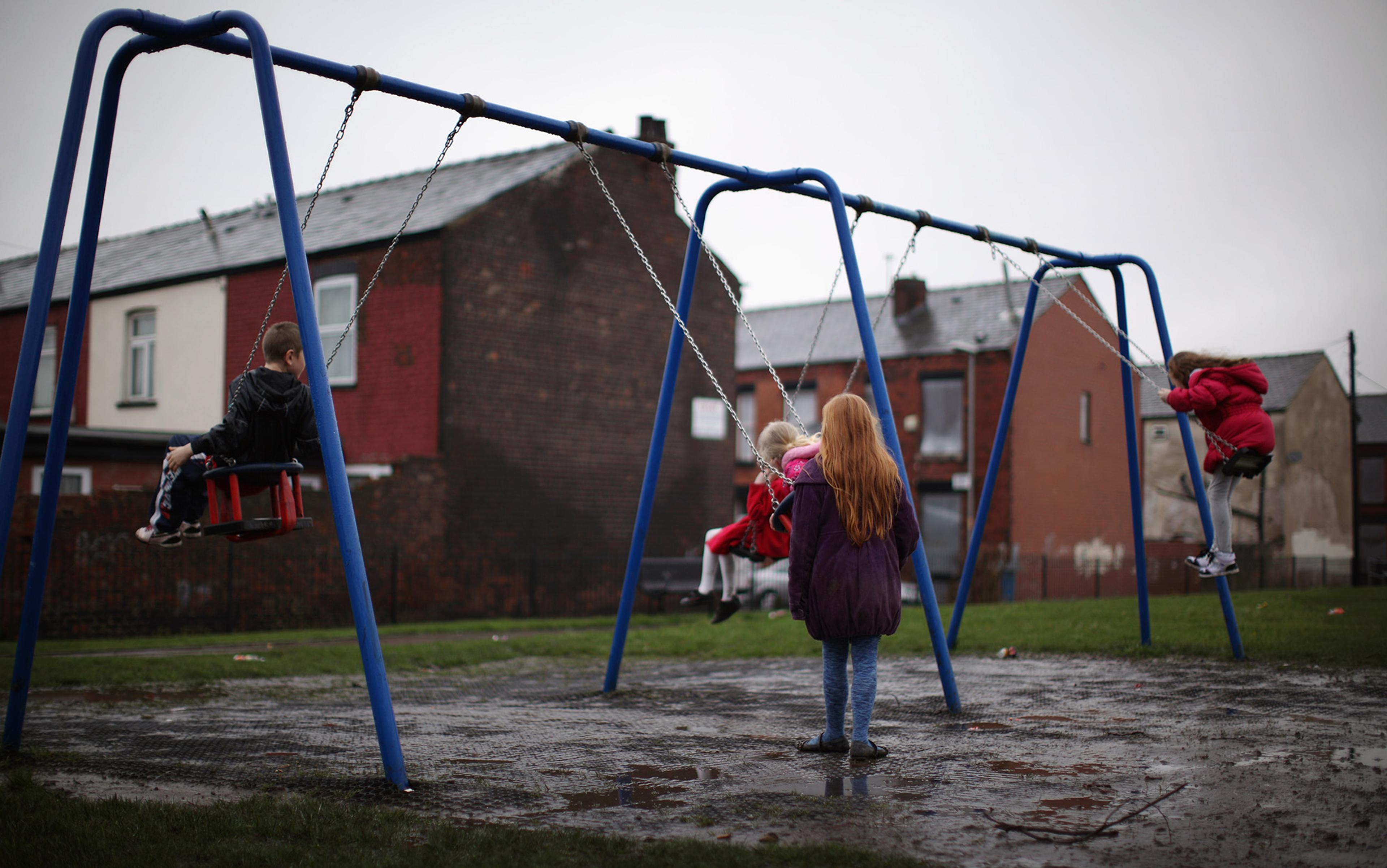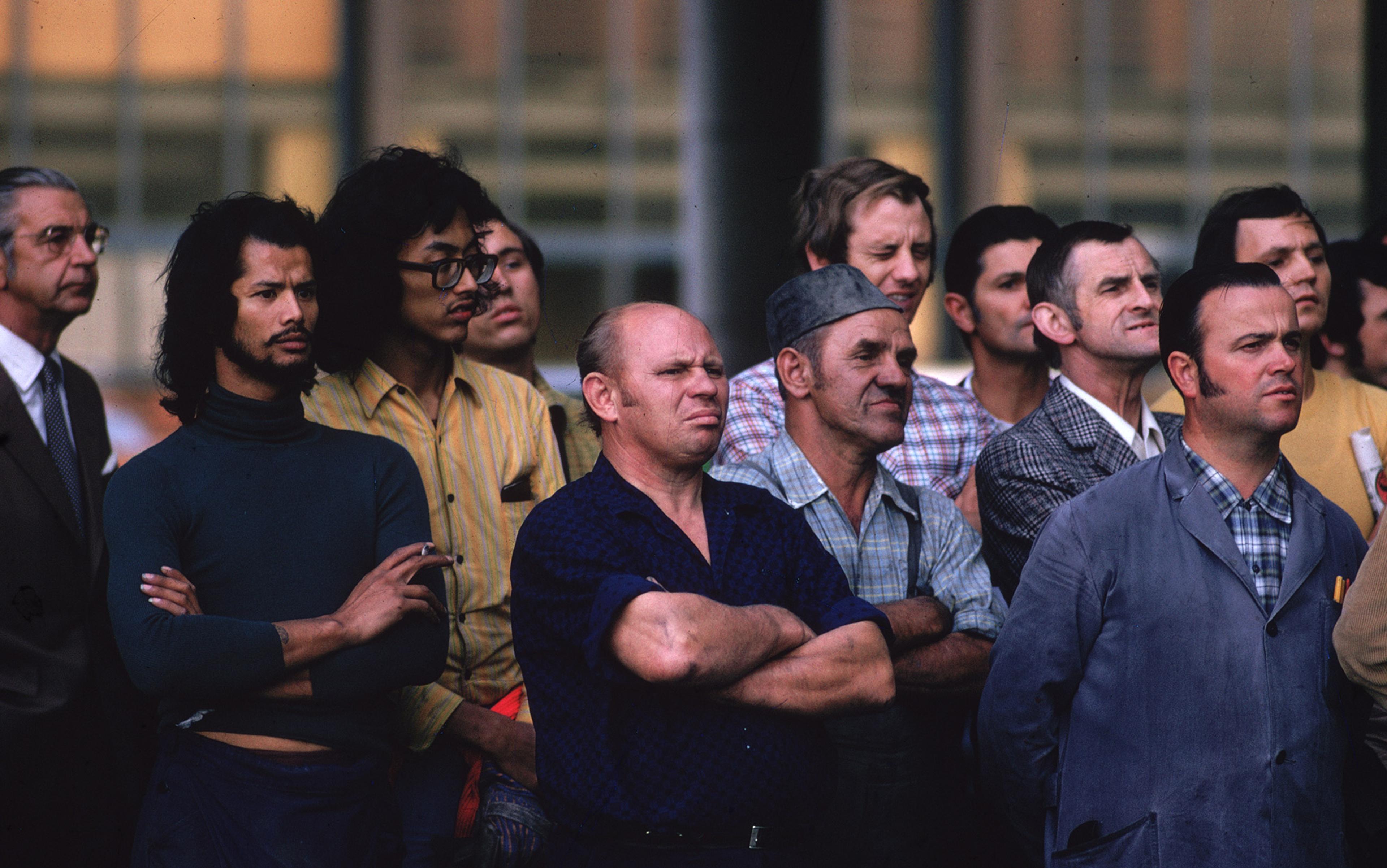Most of us are Stoics. We think that happiness is something that individuals find for themselves: the key is to work hard for a good life, and to face adversity with defiance. This ‘rugged individualism’ might fit the American ethos, but it is at odds with a growing body of empirical research that shows that some kinds of societies produce a great deal more satisfaction with life than others. Happiness, in other words, is more social than psychological.
If so, then the obvious step, as Albert Einstein put it, is to ‘ask ourselves how the structure of society and the cultural attitude of man should be changed in order to make human life as satisfying as possible’. Economists, political scientists and other social scientists in the growing field of the political economy of wellbeing, or ‘happiness economics’, are using empirical rather than speculative methods to better understand what makes for satisfying lives. Happiness economics is not to be confused with ‘positive psychology’, which approaches happiness as a matter of individual attitudes. In contrast, scholars of ‘happiness economics’ maintain that, in the aggregate, a satisfying life is rooted in objective conditions, such that the economic, political and social aspects of societies are strong predictors of individual happiness.
The policies most conducive to human wellbeing turn out to be essentially the same ones that Einstein himself originally suggested: those associated with social democracy. In reviewing the research in 2014, Adam Okulicz-Kozaryn, a political scientist at Rutgers University-Camden in New Jersey, found that ‘societies led by leftist or liberal governments (also referred to as welfare states)’ have the highest levels of life satisfaction, controlling for other factors. Looking across countries, the more generous and universalistic the welfare state, the greater the level of human happiness, net of other factors.
The phrase ‘welfare state’ is pejorative to many Americans, but it would be less so if they had a better understanding of what it implies to the rest of the world. In the abstract, a welfare state means a society that has created a system of protecting people against the insecurities of everyday life by socialising risk and reward. This implies not only the staples of social protection – guaranteed access to healthcare, unemployment insurance, and pensions – but benefits unknown in the United States, such as state-mandated sick days (in Germany, six weeks at full pay, and then up to 78 weeks at 70 per cent) and guaranteed vacation days (four weeks at full pay in Germany). More surprising perhaps are ‘family allowances’, or grants paid to all families with children, regardless of income – every German family receives 184 euros (or around $205) per month, per child. Minimum guaranteed earnings are also much higher in countries approaching the welfare state ideal – Denmark’s effective minimum wage is about $20 per hour. It is this sense of shared risk and shared prosperity that prompted the late Swedish Prime Minister Olof Palme to observe that: ‘With all its faults, the welfare state remains the most humane and civilised system ever created.’
It is public policies that are humane and civilised that foster the conditions which allow people to actually enjoy being alive. That conclusion is provocative and profound, suggesting that if human wellbeing is the appropriate metric by which to judge, then the choice of left over right public policies is justified on objective, ‘scientific’ grounds. But what is this ‘science of happiness’ and how has it come to such dramatic conclusions?
The idea of a science of happiness invites skepticism. Some feel that happiness is too slippery or elusive to admit of easy measurement or study using scientific methods. Antipathy to approaching wellbeing via social-scientific means can be down to a Frankenstein-like fear of science, an apprehension that studying happiness might lead to the silencing of non-experts. This fear is worth respecting; no one wants a world in which only ‘experts’ can talk about happiness.
Happiness is not chemistry or algebraic geometry, fields where lay views have little impact. But social science research on happiness is based on asking people if they are happy. Thus, we are not interested in deciding what happiness is – an undeniably difficult problem – but only in knowing if people are happy. All we want to know, in sum, is how much people find their lives to be positive and rewarding – in Einstein’s phrase, ‘satisfying’.
The World Values Survey provides comparable data on life satisfaction and other measures of subjective wellbeing for the universe of industrial democracies from 1981 to 2014. Most of the research in happiness economics relies upon this survey question (or some minor variant): ‘All things considered, how satisfied are you with your life as a whole these days?’ to which respondents are asked to reply on a scale from 1 (dissatisfied) to 10 (satisfied). Individuals decide the vital, and individual, matter of what happiness means, and how happy they are, for themselves. With their answers, social scientists can study happiness the way any empirical phenomenon is studied.
There are pitfalls in using survey methods, but only the same ones that social scientists are used to in any kind of survey. Does the question measure what we think it does, and does it do so consistently and reliably? Do people even know how happy they are – and if they do, are there cultural factors that discourage them from answering honestly? A cottage industry of research has grown up around these questions and similar matters, but the professional jury believes that they do not present serious complications to the researcher.
those factors external to the individual that drive the provision of basic needs will have the greatest impact on wellbeing
So, we have data on happiness. What theories do we have to inform the analysis of those data? Psychologists rely on genetic and personality explanations: happiness is a relatively fixed personality trait, wherein everyone has a set-point, to which they naturally return following brief deviations in reaction to life events. Economists have tended to focus on the importance of ‘consumption’ or income, and are much vested in the idea that happiness is relative. Thus, the Easterlin Paradox, named for the US economist Richard Easterlin, who first described it in 1974: at any given time, people with higher incomes are happier, since they judge themselves to be relatively privileged compared with those on lower incomes. But, over time, rising levels of national income do not raise the average level of happiness, since the consumption norm by which people make comparisons also increases. The implication is that a narrow focus on just raw economic growth is a mistake, given that what people need more of are the social goods that are judged absolutely, not relatively – of which financial security, access to health care, and dignity are prime examples.
This takes us to approaches that stress the provision of just such human needs. The most prominent of these is what the Dutch sociologist Ruut Veenhoven of the Erasmus University in Rotterdam has labelled ‘liveability theory’, which simply suggests that people are happier in those societies that are the most liveable, in the sense of providing the highest level of human needs to the greatest number of people. In this interpretation, people are simply happier when more of their needs as human animals are met. The influential work of the late US psychologist Abraham Maslow provides a model for understanding those needs, from the more basic lower-level needs necessary to obtain the higher-order ones. Food, clothing and shelter – our physiological needs – are at the bottom of the pyramid, followed by financial security, employment, and freedom from fear or crime. These are safety and security needs. Esteem constitutes the next level – these include friendships, romantic love, and immersion in social networks. A sense of being valued by one’s community and an amount of agency, or being able to make decisions of consequence about one’s life, form the higher level needs of self-respect and self-actualisation.
This approach reveals a hierarchy of needs. Physiological needs and security – the bottom of the chain of wellbeing – are most crucial, in that they are necessary for the attainment of other goals. Thus, those factors external to the individual that drive the provision of basic needs will have the greatest impact on wellbeing. By enumerating what these basic needs are, we know what institution is most important in generating and distributing them: the economy. The key to understanding happiness, then, is to be found in understanding how the market economy works.
The market has much to recommend it. It is one of humanity’s greatest achievements, providing both a greater degree of human liberty and a higher standard of living for more people than any other readily achievable form of economic production. As a system, it contributes to human happiness by successfully meeting basic human needs in vital and unique ways. But the internal logic of capitalism contains elements that are destructive to the common good. Externalities, such as pollution, are the most familiar of such problems, but there is a deeper, even foundational characteristic of capitalism that warrants our attention.
It is arguably the single most important concept in the entire logic of capitalism: commodification, more specifically the commodification of labour. A commodified world is one in which the vast majority of the population is dependent for their economic survival on the sale of their labour power as a commodity in the form of wage or salary work. In other words, to survive, people must sell their ability to work in the same kind of market that exists for any other commodity. As the 18th-century political economist Adam Smith noted, the demand for men is like that for any other commodity. Whatever the many positive and commendable aspects of the market economy, the reduction of people to commodities comes with two negative consequences.
people adopt the values of the market prison – competitive individualism, short-term material gain – that detract from a satisfying life
First, when people become commodities they become subject to pitiless market forces beyond their control. They face a world characterised by chronic insecurity, since the market for the sale of their labour is, like the market for any commodity, subject to uncontrollable fluctuation. People become dependent on forces indifferent to them, or to any individual. As the Danish sociologist Gøsta Esping-Andersen put it in The Three Worlds of Welfare Capitalism (1990), ‘the market becomes to the worker a prison’. To survive and try to flourish, people adopt the values and norms of the market prison – competitive individualism, egotism, a focus on short-term material gain. In practice, these values detract from a satisfying life.
Commodification has another, equally destructive aspect. When people are reduced to commodities, they lack the ability to make moral claims on society. Just as we have no moral responsibility to bushels of wheat or consignments of mobile phones, we have no moral responsibility to workers who are conceived of as commodities, labour units instead of people. Not only is a commodity without a right to a job to begin with, it certainly has no right to paid sick days or vacation time, to pensions or healthcare, or to protection against arbitrary dismissal, to say nothing of a guaranteed severance package or similar redundancy benefits.
Rather than being treated with dignity and respect – as valued members of a community whose work contributes to the general good – workers as commodities are merely another factor of production, no more worthy of considerate treatment than the machines they manipulate.
If commodification is so harmful to humans, while the greater market system itself contributes so much to human society, the obvious solution is to maintain the essential features of the market while introducing public policies that serve to ‘decommodify’ workers and their families. Simply put, a society is decommodified to the extent that individuals can maintain something like a middle-class existence if they are unable to successfully sell their labour power as a commodity due to illness, old-age, disability, the need to care for a family member, the desire to improve one’s position through further education, or simply the inability to find (good) jobs when times are hard. The greater the level of decommodification, the easier it is for more people to survive without winning in the labour market.
The creation of a social safety net (the much-maligned ‘welfare state’) is essential to decommodifying people. It assures that those unable to find work will be provided with a minimum income, coupled in its most expansive form with other programmes that limit the extent to which one’s wellbeing is dependent on income – such as ‘family allowances’ (ie child support payments provided by the public), subsidised daycare and housing, and the availability of healthcare as a social right, ie as something (like police protection) that one receives because one is a citizen, not because one can pay for it.
Labour unions also play a vital role in helping decommodify people, by providing a degree of protection to workers against the arbitrary whims of employers; the higher wages and benefits of unionised workers tend to raise the wage floor for all. Finally, labour market regulations can cover all employees, even those not in labour unions. These protections, in some countries, protect all workers, assure them paid vacation and sick days, maintain high levels of workplace safety, and might even (as in codetermination schemes) provide workers with a say in how the business is managed. All this serves to not only reduce insecurity and other forms of stress, but helps contribute to an environment in which workers feel that they are treated with the dignity and respect all persons deserve.
Does decommodification actually have these positive benefits, and, if so, do these positive benefits accrue in excess of the negative costs of reducing market efficiency? That is the empirical question on which political scientists focus. Simply put, does the political programme of the left really best contribute to a world in which people lead positive and rewarding lives? This is not a philosophical or normative question. Nor is it a matter of political taste. It is rather a relatively simple empirical question that can be answered through the examination of the data on life satisfaction.
In The Political Economy of Human Happiness (2013), I analyse the data in more detail, but the sketch of an answer follows, and other scholars have come to similar conclusions. The principal data come from the World Values Surveys; additional similar data are used for a companion comparison of satisfaction across the US.
Using both individual- and aggregate-level data, I find that life satisfaction is higher in those countries that have the highest levels of decommodification. The positive relationship between decommodification and wellbeing obtains when using two different indices of the total level of decommodification (summarising multiple programmes into a single index), as well as with more particular measures of specific policies, such as the share of the economy (the percentage of gross domestic product) devoted to social spending, a measure of the scope and generosity of unemployment compensation per se, and the total amount of ‘government consumption’ (as a percentage of GDP) as a measure of the total share of the economy the government controls. There is also a positive relationship between satisfaction and tax burden, meaning that wellbeing improves as society pays more in taxes, as a necessary compliment to higher levels of spending. Wellbeing also varies in the expected direction when considering an index of the general size and scope of government developed by the ultra-conservative Fraser Institute in Canada: in their terms, life satisfaction increases when there is more ‘economic freedom’.
Similar results obtain when considering the effects of labour organisation and economic regulation. Individuals who belong to labour unions are more satisfied with their lives than non-members, other things being equal. More importantly, everyone in society benefits from higher levels of labour union organisation, whether a member or not. The principal reason for the latter finding is that, as unions become stronger, they support public policies (through their own self-interest as much as any altruism) which benefit all workers, such as the social safety net. They also tend to support pro-worker labour-market regulations, which themselves also have a strong and positive impact on life satisfaction (as demonstrated statistically using different measures of regulation, including, again, one from the anti-regulation Fraser Institute).
life satisfaction is higher in those states that have, measured in partisan terms, recent rule by the Democratic Party
Critically, all of these relationships obtain regardless of one’s income or social status. Everyone benefits from a more generous welfare state, from labour laws that protect workers, and from strong unions, whatever their income, in that these institutions help build a more ‘liveable’ society of shared prosperity (and shared human dignity) from which all benefit.
The cross-national pattern also repeats itself across the US: while the exact indicators vary based on the availability of data, it is clear that life satisfaction is higher in those states that have higher levels of welfare spending, a more regulated economy, and governments that have a longer history of either policy liberalism or, to measure the same concept in partisan terms, recent rule by the Democratic Party. Quality of life (for rich and poor, men and women) also shows the same strong and positive relationship with the size of the labour movement: life is better in those states where more workers belong to unions, controlling for other factors.
The fact is that, however we approach the subject empirically, human happiness increases as the level of decommodification increases. If indeed we are concerned with building a world in which people lead lives that they themselves find to be valuable and rewarding, we would be well‑advised to consider why the term ‘welfare state’ has acquired such disrepute in the US, despite the fact that it has produced more human happiness than other kinds of state.
If there is a strong link between the social-democratic vision of politics and human wellbeing, why does that vision appear to be in retreat? If ‘big government’ makes people happy, why do voters seem to be more inclined to elect governments that are committed to unfettered markets, ‘flexible’ labour laws, and ever-lower social spending?
This question is a real and important one, but its posing should not be understood as tantamount to the end of the welfare state. The generous welfare states of Western Europe have indeed been chipped away at in recent decades, but their basic features remain in place almost everywhere. That is because there is a social consensus for maintaining those fundamental contours. Even in the UK and the US, as conservative commentators have gloomily observed, the core elements of the welfare state have resisted the past efforts of Margaret Thatcher and Ronald Reagan to undo them.
The welfare state has shown great resilience – as in the UK’s National Health Service or Medicare in the US – precisely because of its intimate connection with human wellbeing. The examples earlier in this article about social protection in contemporary Germany – a middling welfare state, compared with the Nordic countries – also illustrates that, even in these times, social democracy is flourishing. Other signs of the vibrancy of this progressive achievement are everywhere to be seen, so I will name just two: the US just managed to extend a social right of access to medical care, courtesy of Obamacare; and Thomas Piketty’s Capital in the Twenty-First Century (2013) – a leftist critique of the currently dominant form of capitalism – has become what The Guardian rightly called a ‘publishing sensation’ comparable to Fifty Shades of Grey. When an economist’s research on long-term patterns of inequality under capitalism is generating the same interest as kinky sex, it is definitely too early to count the left out.
Just as in their private lives, people have to learn what political outcomes will make them happy
Still, if the welfare state leads to more human happiness, why is it under attack, and not expanding? The most obvious answer is that people do not always know what makes them happy. Much work by psychologists and economists alike has confirmed that many of the things we strive for either provide far less happiness than we might expect (promotions, raises) or even make us less happy (having children). It is hard enough to judge, in our personal lives, what will make us happier. The difficulties in deducing the consequences of political programmes on our happiness, especially those whose connection to our own life is hard to judge, are significant.
The strongest support is for those kinds of ‘big government’ programmes we can see working: you like social security when you get a payment, or your parents receive one. It is harder to like food stamps if you and the people you interact with don’t rely on the programme; the tangible benefits to you come obliquely, in the form of more social capital and less violent crime. When political parties succeed in illustrating the value of building a country in which children do not go hungry, and so providing an immediate and welcome benefit to everyone with children – remember those German family allowances – political support for the welfare state is naturally higher. Just as in their private lives, people have to learn what political outcomes will make them happy. That is easier in some places than others.
It is also unfortunately true that what people want does not always, or even usually, get translated into public policies. Students of political economy often think of policy outcomes as being the result of the ‘power resources’ that different classes possess. Among the most important for representing the interests of the working class and the middle class, in both policy and opinion spheres, are labour unions, which have been under pressure almost everywhere, but especially in the US. The recent instituting of so-called ‘right-to-work’ laws (whose explicit purpose is to make union organising impossible) in Indiana, Michigan and Wisconsin must be seen in this context: the goal is to destroy a major institutional voice for the progressive policies that benefit working people, so as to reduce their contribution to public debate and policymaking.
To the extent that labour has declined across countries, so has this voice – and thus so have both happiness and the welfare state. It is thus not necessarily so much that people have turned against progressive ideals as that the strongest organised interest group supporting that approach has been (to various degrees) emasculated. While labour has hung on to a substantial degree in much of Europe, losses in the US have been dramatic. The decline of unions is reflected in the huge body of recent research on policymaking in the US, nicely summarised in April 2014 by this US News and World Report headline: ‘Oligarchy Nation – Political Scientists Find Wealthy Elites Control Politics in America’.
We need not be quite so literal as to believe that business and the wealthy have grossly disproportionate influence over politics: such people are generally disinclined to be supportive of the welfare state, and they also have enormous influence over public opinion through their ownership of the media. But it takes little insight to see how the fate of the social-democratic approach to politics faces an uphill battle, whatever the consequences for human wellbeing.






